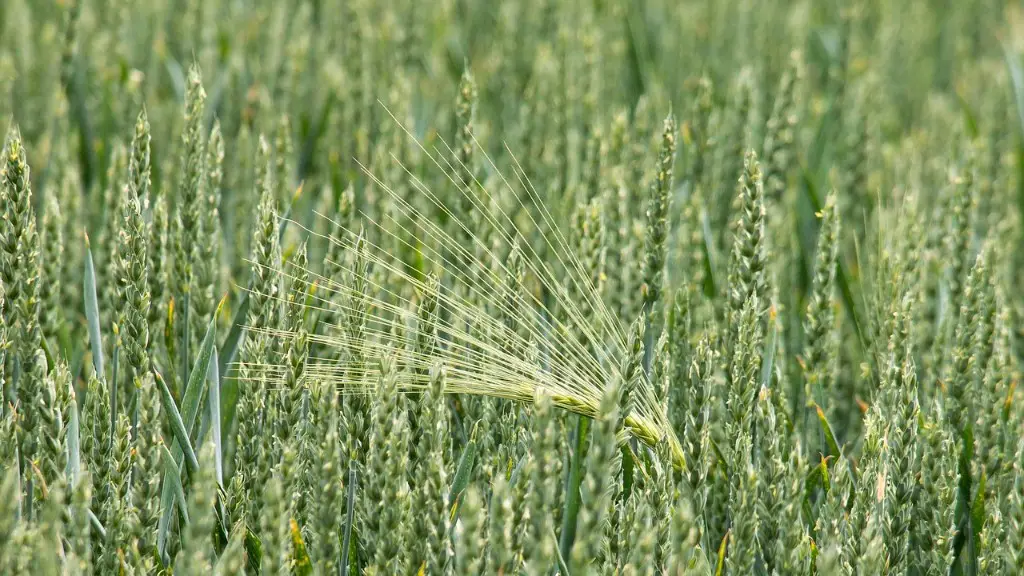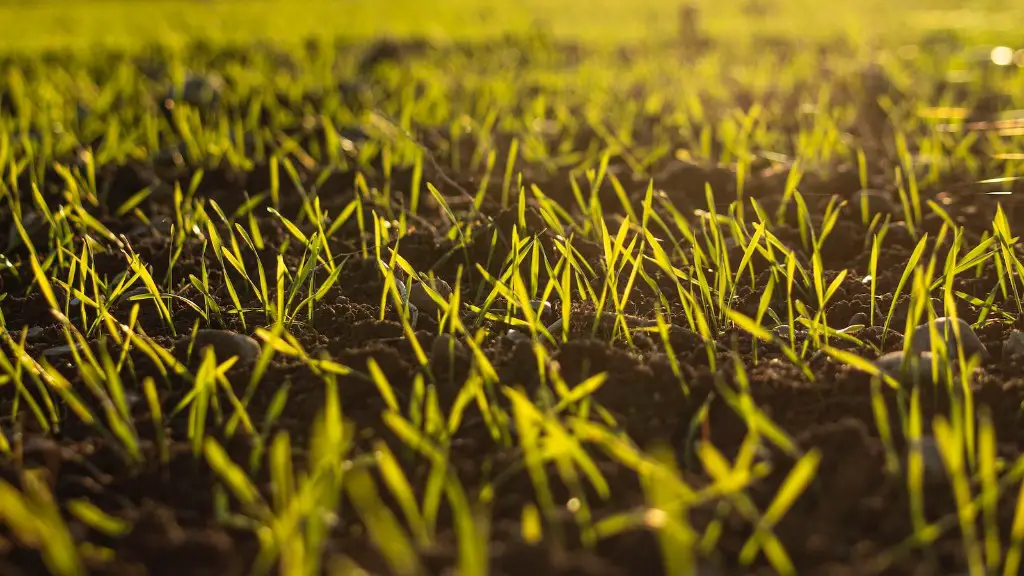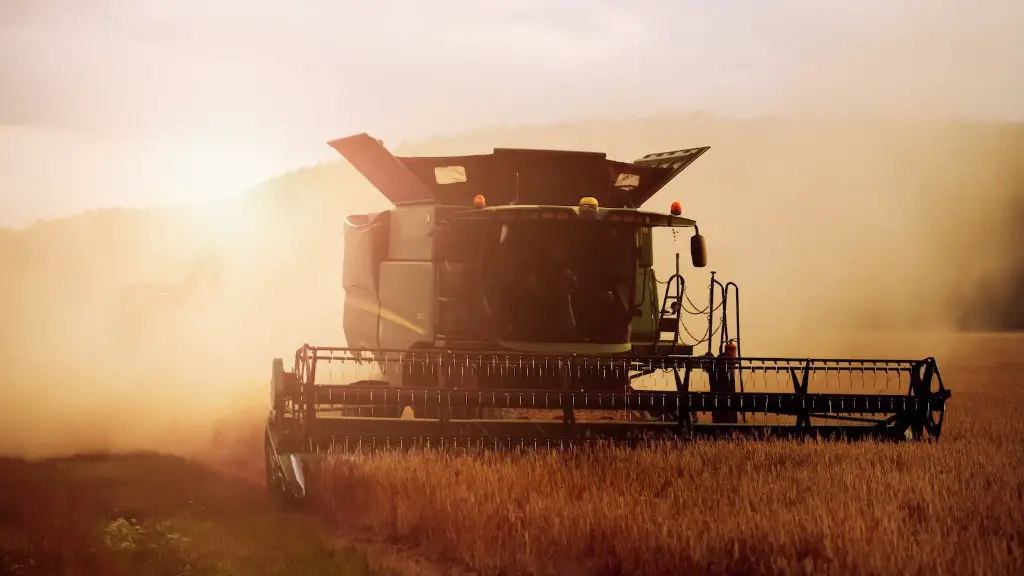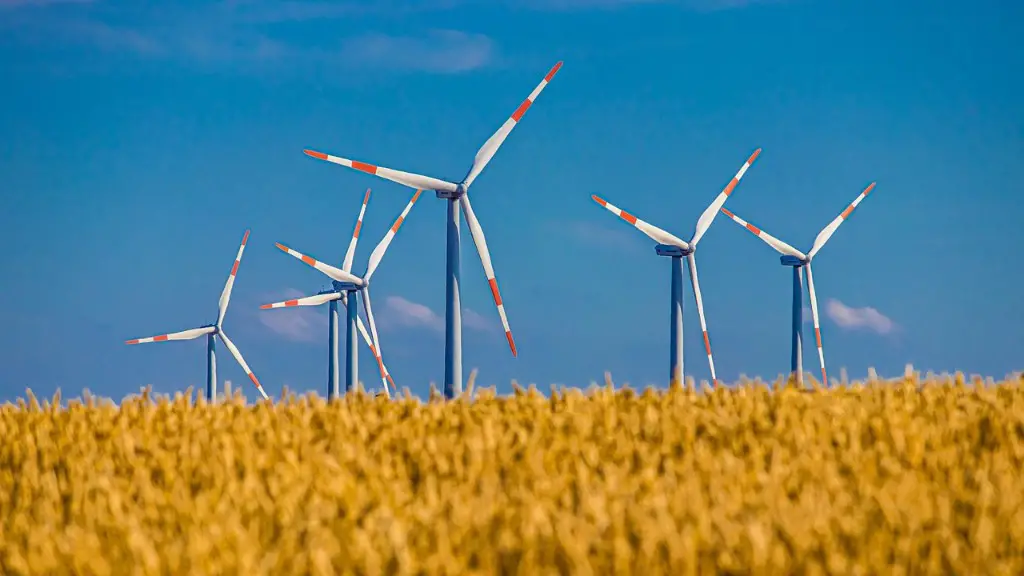The agriculture industry is a crucial part of any economy. It provides the food and fiber that are necessary for survival and supports other industries that depend on agriculture for inputs. Agriculture is also a major source of employment and export earnings in many countries. In developed economies, the sector accounts for a small share of GDP but is still important for food security and rural development. In developing economies, agriculture is often the largest sector of the economy, accounting for a significant share of GDP and employment.
The agriculture sector is the backbone of the economy as it provides employment to a large chunk of the population and is also a major source of foreign exchange earnings. It accounts for a significant share of the gross domestic product (GDP) and is a key driver of economic growth. The sector also supports the livelihoods of a large number of people, especially in rural areas.
Why was agriculture so important to the economy?
Agriculture has a direct and indirect impact on economic development through its contribution to the overall US gross domestic product (GDP). Farm production, forestry, fishing activities, textile mills and products, apparel and food and beverage sales, and service and manufacturing all contribute to the GDP. Agriculture also supports the development of infrastructure and other industries that are necessary for economic growth.
Agriculture is a vital sector in India, as it is the main source of livelihood for around 70% of the country’s population. The sector also provides raw materials to various industries, such as the food processing and textile industries. Given the importance of agriculture in India, the government has taken various measures to promote and support the sector. These include initiatives to improve agricultural productivity, provide better access to markets, and create a conducive environment for agricultural growth.
Why is agriculture the backbone of America
Agriculture plays a vital role in ensuring economic security for rural communities in the United States. Hardworking Americans who are employed in the agricultural sector have helped to grow the economy and contribute to the middle class. Agriculture has also helped to create jobs and support businesses in rural areas.
It is amazing to realize how agriculture impacts our lives. Food and fiber products play a major role in each part of our lives and without them we would perish. Agriculture provides the food we eat, the clothes we wear, and the fuel we use to heat our homes and run our vehicles. It is truly the foundation of our society.
What are 3 reasons why agriculture is important?
1. Agriculture is the main source of raw materials for industries.
2. It is important to international trade.
3. It plays a big role in a nation’s revenue.
4. It provides employment.
5. It’s crucial to a country’s development.
6. It can help heal the environment.
7. It goes hand-in-hand with war.
8. It helps to feed the world.
Agriculture plays a critical role in the entire life of a given economy. Agriculture is the backbone of the economic system of a given country. In addition to providing food and raw material, agriculture also provides employment opportunities to a very large percentage of the population.
What is the backbone of our economy?
Entrepreneurs are the driving force behind the success of any economy. They are the ones who introduce new products, production methods, and business strategies to the market, thereby boosting productivity and competition while creating employment. In short, entrepreneurs are vital to the health of an economy.
It is estimated that women make up 43% of the agricultural labor force in developing countries, and in some regions, they comprise up to 80% of the agricultural workforce. Although women play a vital role in agriculture, they often do not have the same access to land, credit, and technology as men, and they are more likely to be involved in subsistence farming. As a result, women are often poorer and more vulnerable to hunger and poverty than men.
The Director-General of the FAO has called for greater investment in women in agriculture, as well as more policies and programs that support their empowerment. He has also urged governments to ratify the FAO’s International Treaty on Plant Genetic Resources, which includes a provision on the fair and equitable sharing of benefits from the use of plant genetic resources.
How can we say that farmers are the backbone of economy
agricultural production is the backbone of the economy and there is no denying its importance in the GDP. However, it is also important to note that agricultural production does not happen in a vacuum. There are a number of factors that contribute to successful agricultural production, including the farmers themselves, the land, the climate, and the government. Each of these factors plays a vital role in the success of the agricultural sector and, ultimately, the economy as a whole.
Agriculture provides most of the world’s food and fabrics. Cotton, wool, and leather are all agricultural products. Agriculture also provides wood for construction and paper products. These products, as well as the agricultural methods used, may vary from one part of the world to another.
How did agriculture impact society?
The development of agriculture allowed for the growth of cities and civilizations, as it allowed for the farming of crops and animals to meet demand. This led to a population increase from five million people 10,000 years ago to more than seven billion today.
More abundant food supplies could support denser populations, and farming tied people to their land. Small settlements grew into towns, and towns grew into cities. Agriculture produced enough food that people became free to pursue interests other than worrying about what they were going to eat that day. This led to the development of art, music, religion, and science.
What are the five benefits of agriculture
Farming is a great way to get healthy and fit. It is challenging and stimulating work that provides a source of income in rural areas. Farm work also helps develop younger generations. Farming can help the environment thrive.
It is clear that growth in agriculture results in increased employment and income for rural households. This, in turn, has a positive impact on poverty reduction and food security. The government should focus on policies that support and encourage agricultural growth in order to create more jobs and reduce poverty in rural areas.
What is the main purpose of agriculture?
Agriculture has been a key part of human civilization for centuries, providing food and other products for people to live on. Today, it remains an important industry, with many different sub-fields such as crop and livestock production, aquaculture, forestry and fisheries.
The substantial increase in total agricultural production over the past few decades can be attributed to the advent of new technologies, innovations, and process improvements in the farm sector. These have helped to boost yields and productivity, while also reducing wastage and making the sector more efficient overall. In addition, government policies and programmes have also played a role in supporting the sector’s growth. Looking ahead, it is crucial that the sector continues to innovate and adopt new technologies in order to maintain its competitiveness and meet the growing demand for food.
Why is agriculture better than industry
Productivity gains in the industrial sector are driven by technological advances and economies of scale. Large, integrated supply chains and concentrated manufacturing result in opportunities for capital accumulation. As a result, productivity in the industrial sector is typically higher than in the agricultural sector.
Manufacturing is the production of goods by means of labor and machines. It is the process by which raw materials are turned into products that are sold to customers. The manufacturing sector is considered to be the backbone of general and economic development. Manufacturing is a key driver of economic growth and competitiveness. It is an important source of jobs and income, and a major contributor to exports.
Warp Up
Agriculture is the backbone of the economy because it is the largest sector of the economy. It employs the most people and contributes the most to the GDP.
Agriculture is the backbone of the economy for a variety of reasons. It is one of the oldest and most essential industries, providing food and fiber for people and animals. It is also a major contributor to the world economy, with the agricultural sector accounting for approximately 2.5% of global GDP. In addition, agriculture is a major employer, with over 1.3 billion people employed in the sector worldwide. Finally, agriculture is a key driver of economic growth and development, with the sector often being one of the first sectors to recover from economic downturns.





